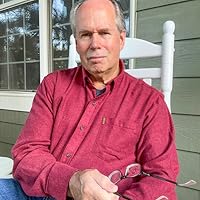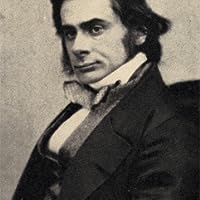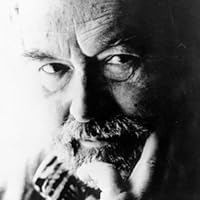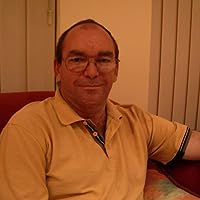Fabrication Quotes
Quotes tagged as "fabrication"
Showing 1-23 of 23

“You can believe in whatsoever you like, but the truth remains the truth, no matter how sweet the lie may taste.”
―
―

“I cannot encourage any fabrication even for the sake of making people feel good. If I were to fabricate consciously and knowingly, I would not only be ordaining myself their enemy, but also ordaining myself God's enemy.”
― Killosophy
― Killosophy

“When it's time to confess, you don't know what you're saying. Are you telling the truth, or do you confuse your lies with reality? The question is comical. The answer is lost in the maelstroms of consciousness. It's even impossible to pretend, eventually, that the question wasn't asked. You've been kidding yourself about yourself for so long, you're someone else. Your you is just a fragile fabrication. Every morning, you have to wake up, assemble this busy, dissembling monster, and get him or her on his or her feet again for another round of fantasy.”
― The Other
― The Other

“As individuals die every moment, how insensitive and fabricated a love it is to set aside a day from selfish routine in prideful, patriotic commemoration of tragedy. Just as God is provoked by those who tithe simply because they feel that they must tithe, I am provoked by those who commemorate simply because they feel that they must commemorate.”
― Killosophy
― Killosophy

“Possibly the most debilitating deception of all is to create a god of my own making, fool myself into believing that this limp god of mine is the true God, and then construct the entirety of my life on this flamboyantly fictional character. Possibly the most devastating realization of all is when the real God shows up, and in the showing up all of this come crashing down.”
―
―

“It is my conviction that, with the spread of true scientific culture, whatever may be the medium, historical, philological, philosophical, or physical, through which that culture is conveyed, and with its necessary concomitant, a constant elevation of the standard of veracity, the end of the evolution of theology will be like its beginning—it will cease to have any relation to ethics. I suppose that, so long as the human mind exists, it will not escape its deep-seated instinct to personify its intellectual conceptions. The science of the present day is as full of this particular form of intellectual shadow-worship as is the nescience of ignorant ages. The difference is that the philosopher who is worthy of the name knows that his personified hypotheses, such as law, and force, and ether, and the like, are merely useful symbols, while the ignorant and the careless take them for adequate expressions of reality. So, it may be, that the majority of mankind may find the practice of morality made easier by the use of theological symbols. And unless these are converted from symbols into idols, I do not see that science has anything to say to the practice, except to give an occasional warning of its dangers. But, when such symbols are dealt with as real existences, I think the highest duty which is laid upon men of science is to show that these dogmatic idols have no greater value than the fabrications of men's hands, the stocks and the stones, which they have replaced.”
― The Evolution Of Theology: An Anthropological Study
― The Evolution Of Theology: An Anthropological Study

“I'm beginning to think you're the sort of person who does a great deal with very little."
He meant a liar.”
― Shades of Grey
He meant a liar.”
― Shades of Grey

“What millions believe is often just fairy tales for children! The fabrications of the past are ridiculously accepted as the holies of people! Glory lies in searching the truth not in believing the irrational legends!”
―
―
“It was after a Frontline television documentary screened in the US in 1995 that the Freyds' public profile as aggrieved parents provoked another rupture within the Freyd family, when William Freyd made public his own discomfort.
'Peter Freyd is my brother, Pamela Freyd is both my stepsister and sister-in-law,' he explained. Peter and Pamela had grown up together as step-siblings. 'There is no doubt in my mind that there was severe abuse in the home of Peter and Pam, while they were raising their daughters,' he wrote. He challenged Peter Freyd's claims that he had been misunderstood, that he merely had a 'ribald' sense of humour. 'Those of us who had to endure it, remember it as abusive at best and viciously sadistic at worst.' He added that, in his view, 'The False memory Syndrome Foundation is designed to deny a reality that Peter and Pam have spent most of their lives trying to escape.' He felt that there is no such thing as a false memory syndrome.' Criticising the media for its uncritical embrace of the Freyds' campaign, he cautioned:
That the False Memory Syndrome Foundation has been able to excite so much media attention has been a great surprise to those of us who would like to admire and respect the objectivity and motive of people in the media. Neither Peter's mother nor his daughters, nor I have wanted anything to do with Peter and Pam for periods of time ranging up to two decades. We do not understand why you would 'buy' into such an obviously flawed story. But buy it you did, based on the severely biased presentation of the memory issue that Peter and Pam created to deny their own difficult reality.
p14-14 Stolen Voices: An Exposure of the Campaign to Discredit Childhood Testimony”
―
'Peter Freyd is my brother, Pamela Freyd is both my stepsister and sister-in-law,' he explained. Peter and Pamela had grown up together as step-siblings. 'There is no doubt in my mind that there was severe abuse in the home of Peter and Pam, while they were raising their daughters,' he wrote. He challenged Peter Freyd's claims that he had been misunderstood, that he merely had a 'ribald' sense of humour. 'Those of us who had to endure it, remember it as abusive at best and viciously sadistic at worst.' He added that, in his view, 'The False memory Syndrome Foundation is designed to deny a reality that Peter and Pam have spent most of their lives trying to escape.' He felt that there is no such thing as a false memory syndrome.' Criticising the media for its uncritical embrace of the Freyds' campaign, he cautioned:
That the False Memory Syndrome Foundation has been able to excite so much media attention has been a great surprise to those of us who would like to admire and respect the objectivity and motive of people in the media. Neither Peter's mother nor his daughters, nor I have wanted anything to do with Peter and Pam for periods of time ranging up to two decades. We do not understand why you would 'buy' into such an obviously flawed story. But buy it you did, based on the severely biased presentation of the memory issue that Peter and Pam created to deny their own difficult reality.
p14-14 Stolen Voices: An Exposure of the Campaign to Discredit Childhood Testimony”
―

“The first chapter of Matthew begins with giving a genealogy of Jesus Christ; and in the third chapter of Luke there is also given a genealogy of Jesus Christ. Did these two agree, it would not prove the genealogy to be true, because it might nevertheless be a fabrication; but as they contradict each other in every particular, it proves falsehood absolutely. If Matthew speaks truth, Luke speaks falsehood; and if Luke speaks truth, Matthew speaks falsehood: and as there is no authority for believing one more than the other, there is no authority for believing either; and if they cannot be believed even in the very first thing they say, and set out to prove, they are not entitled to be believed in any thing they say afterwards. Truth is an uniform thing; and as to inspiration and revelation, were we to admit it, it is impossible to suppose it can be contradictory. Either then the men called apostles were imposters, or the books ascribed to them have been written by other persons, and fathered upon them, as is the case in the Old Testament.
Now, if these men, Matthew and Luke, set out with a falsehood between them (as these two accounts show they do) in the very commencement of their history of Jesus Christ, and of who, and of what he was, what authority (as I have before asked) is there left for believing the strange things they tell us afterwards? If they cannot be believed in their account of his natural genealogy, how are we to believe them when they tell us he was the son of God, begotten by a ghost; and that an angel announced this in secret to his mother? If they lied in one genealogy, why are we to believe them in the other? If his natural genealogy be manufactured, which it certainly is, why are we not to suppose that his celestial genealogy is manufactured also, and that the whole is fabulous? Can any man of serious reflection hazard his future happiness upon the belief of a story naturally impossible, repugnant to every idea of decency, and related by persons already detected of falsehood?”
― The Age of Reason
Now, if these men, Matthew and Luke, set out with a falsehood between them (as these two accounts show they do) in the very commencement of their history of Jesus Christ, and of who, and of what he was, what authority (as I have before asked) is there left for believing the strange things they tell us afterwards? If they cannot be believed in their account of his natural genealogy, how are we to believe them when they tell us he was the son of God, begotten by a ghost; and that an angel announced this in secret to his mother? If they lied in one genealogy, why are we to believe them in the other? If his natural genealogy be manufactured, which it certainly is, why are we not to suppose that his celestial genealogy is manufactured also, and that the whole is fabulous? Can any man of serious reflection hazard his future happiness upon the belief of a story naturally impossible, repugnant to every idea of decency, and related by persons already detected of falsehood?”
― The Age of Reason

“Long before being artists, we are artisans; and all fabrication, however rudimentary, lives on likeness and repetition, like the natural geometry which serves as its fulcrum. Fabrication works on models which it sets out to reproduce; and even when it invents, it proceeds, or imagines itself to proceed, by a new arrangement of elements already known. Its principle is that “we must have like to produce like.” In short, the strict application of the principle of finality, like that of the principle of mechanical causality, leads to the conclusion that “all is given.” Both principles say the same thing in their respective languages, because they respond to the same need.”
― Creative Evolution
― Creative Evolution

“According to his thinking, man was not born for a particular purpose. Quite the opposite: a purpose developed only with the birth of an individual. To objectively fabricate a purpose at the outset and to apply it to a human being was to rob him at birth of freedom of action. Hence, purpose was something that the individual had to make for himself. But no one, no matter who, could freely create a purpose. This was because the purpose of one's existence was as good as announced to the universe by the course of that existence itself.
Starting from this premise, Daisuke held that one's natural activities constituted one's natural purposes. A man walked because he wanted to. Then walking became his purpose. He thought because he wanted to. Then, thinking became his purpose. Just as to walk or to think for a particular purpose meant the degradation of walking and thinking, so to establish an external purpose and to act to fulfill it meant the degradation of action. Accordingly, those who used the sum of their actions as a means to an end were in effect destroying the purpose of their own existence.”
― And Then
Starting from this premise, Daisuke held that one's natural activities constituted one's natural purposes. A man walked because he wanted to. Then walking became his purpose. He thought because he wanted to. Then, thinking became his purpose. Just as to walk or to think for a particular purpose meant the degradation of walking and thinking, so to establish an external purpose and to act to fulfill it meant the degradation of action. Accordingly, those who used the sum of their actions as a means to an end were in effect destroying the purpose of their own existence.”
― And Then

“Making a product is just an activity, making a profit on a product is the achievement.”
― Wealth of Words
― Wealth of Words

“If we must resort to propaganda in order to forcibly make something what it is not, we apparently have little tolerance for what it is. But what we will end up having even less tolerance for is the kind of person that the exercise of propaganda will make us.”
―
―

“More often than not, rhetoric is an attempt to sell a facsimile of the truth to those who have probably already purchased it.”
―
―
All Quotes
|
My Quotes
|
Add A Quote
Browse By Tag
- Love Quotes 97k
- Life Quotes 75.5k
- Inspirational Quotes 72.5k
- Humor Quotes 43.5k
- Philosophy Quotes 29.5k
- Inspirational Quotes Quotes 27k
- God Quotes 26k
- Truth Quotes 23.5k
- Wisdom Quotes 23.5k
- Romance Quotes 23k
- Poetry Quotes 22k
- Death Quotes 20k
- Happiness Quotes 18.5k
- Life Lessons Quotes 18.5k
- Hope Quotes 18k
- Faith Quotes 18k
- Quotes Quotes 16.5k
- Inspiration Quotes 16.5k
- Spirituality Quotes 15k
- Religion Quotes 15k
- Motivational Quotes 15k
- Writing Quotes 14.5k
- Relationships Quotes 14.5k
- Life Quotes Quotes 14k
- Love Quotes Quotes 13.5k
- Success Quotes 13.5k
- Time Quotes 12.5k
- Motivation Quotes 12k
- Science Quotes 11.5k
- Knowledge Quotes 11k



